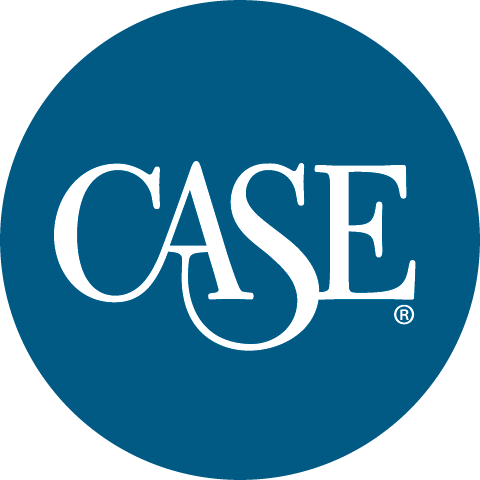July 29 Webinar Tests the Waters for Mentor-Connect & CASE Collaboration

Mentor-Connect and the Council for Advancement and Support of Education (CASE) Center for Community College Advancement are offering the webinar “Everything you Ever Wanted to Know about Getting an NSF ATE grant, But Didn’t Know Whom to Ask” at 1 p.m. on Thursday, July 29.
The one-hour webinar will focus on the funding offered by the National Science Foundation’s Advanced Technological Education (ATE) program and the mentoring and technical support Mentor-Connect provides to help two-year college teams prepare competitive ATE grant proposals.
Register for the free webinar here.
Elaine Craft, principal investigator of Mentor-Connect, described the webinar as a pilot initiative with CASE to see if its members, who are grant professionals at two-year colleges, are interested in accessing Mentor-Connect mentoring and technical resources.
Craft said the webinar will help grant professionals understand the unique aspects of the NSF ATE program and how it benefits technician education programs at two-year colleges.
“We think it is an audience that could help us expand the use of the ATE program,” Craft said.
Mentor-Connect is a leadership development and outreach initiative funded with ATE grants to Florence-Darlington Technical College (South Carolina). The American Association of Community Colleges (AACC) is a partner on all of Mentor-Connect’s programs. These programs include
- mentoring for community college faculty teams from institutions that are new to the ATE program or have not had an ATE grant in seven years;
- mentoring for community college faculty teams that are proposing larger projects that build on their small, new-to-ATE grants;
- providing professional development fellowships to prepare ATE principal investigators to be Mentor-Connect mentors;
- co-mentoring community college faculty with ATE Centers; and
- offering free, grant-writing information via its online Resource Library and technical assistance webinars.
During the webinar, Craft will share the experiences of several grant writers at Mentor-Connect colleges to explain how Mentor-Connect mentors’ thorough understanding of the nuances of the ATE program have resulted in high success rates for the mentee colleges that have submitted proposals in the track for institutions new to ATE.
Marc Westenburg, CASE director for Foundations and Community Colleges, said he hoped the joint program will be mutually beneficial and expressed gratitude for the work Mentor-Connect has done since 2012.
“I think this collaboration is a natural fit. And we really look forward to further exploring the different areas of synergy between our two organizations that can help both of us advance our efforts to best serve community colleges,” he said. CASE provides training and resources – including an annual national conference – to help community colleges build and sustain effective fundraising.
“We talk a lot at CASE about building a culture of philanthropy on campus and the fact that it’s just not the foundation or fundraiser who is tasked with doing philanthropy or advancing the institution. But, I think, within that culture of philanthropy is an opportunity in the space to build a culture of grants among community colleges,” he said.
He pointed out that at many community colleges the grants staff is just one person whose responsibilities include all grant-writing and post-award reporting. CASE and Mentor-Connect encourage a more team-oriented approach and offer resources to help build capacity among faculty and staff for obtaining and carrying out successful grants.
Feedback from the webinar attendees will determine how CASE and Mentor-Connect’s partnership grows.
Westenburg described the webinar as an “opportunity to learn from CASE members how CASE and Mentor-Connect can support them in their efforts to secure NSF-ATE funding because there may be ways that we can service them better, and can open the doors and help them open the doors as well.”
It was Matthew Swenson, a CASE member and Mentor-Connect mentor, who instigated the conversations that led to the webinar.
Swenson, grants director at Green River College (Washington), is the first grant writer to go through Mentor-Connect’s Mentor Fellows program. He said he became involved in Mentor-Connect several years ago after viewing several Mentor-Connect webinars that he calls “invaluable” to his development of ATE proposals.
Since completing the one-year fellowship, Swenson has served as a Mentor-Connect mentor to four colleges. Swenson is also on CASE’s Federal Funding Task Force. Its members meet with federal agency program officers to gather information about funding opportunities.
During the COVID-19 pandemic it occurred to Swenson that Mentor-Connect could be an additional resource for CASE members. The ATE program’s focus on faculty developing proposals for innovative technician education projects is different enough from other federal program requirements that guidance from Mentor-Connect makes a difference, Swenson said.
ATE’s requirement for two-year college leadership and encouragement for principal investigators to build on what they learn from one grant to improve and broaden the reach of their programs with subsequent grants make it an excellent funding opportunity for community colleges.
“ATE is a well that colleges can go back to over and over again” Swenson said.
- Hits: 226




